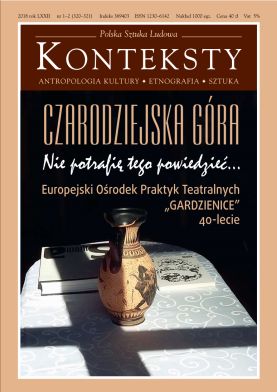Zabroniona funkcja języka: przypadek Amereidy
The Forbidden Function of Language: the Amereida Case
Author(s): Magdalena BarbarukSubject(s): Social Sciences, Fine Arts / Performing Arts, Geography, Regional studies
Published by: Instytut Sztuki Polskiej Akademii Nauk
Keywords: Amereida;Latin America;
Summary/Abstract: The leitmotif of this analysis of Amereida, a phenomenon recognised to be one of the most interesting in contemporary Latin American culture and identified predominantly with the avant-garde architecture of the “Valparaiso School” and the Open City, created in 1971, in which the foundation of multicultural objects is composed of poetic acts (phalànes), is a question about the part played in their emergence by a literary journey, the so-called Travesía. This journey conducted in 1965 by a group composed of ten persons was described as ”mythical”, “foundation-like” and “a new act of founding America”. The author enquires about the effectiveness of literary journeys within the domain of culture, the dependence of decolonisation upon the European heritage, and the ambivalence of utopian undertakings in the Open City at the time of the Pinochet dictatorship, as well as the limitation of media mediating in the journey (poem, diary, photograph). The framework of the reflections is composed of deliberations concerning a new deciphering of the poetics of Mallarmé, in which the restricted impact of language – comprehended as L’action restreinte – does not exclude the political qualities of poetry. Despite such an interpretation and the fact that for Amereida the oeuvre of the French poet comprised a source of essential inspiration, a juxtaposition of both utopias makes it possible to extract the principal difference in the limitations of poetic activity.
Journal: Konteksty
- Issue Year: 320/2018
- Issue No: 1–2
- Page Range: 165-177
- Page Count: 14
- Language: Polish
- Content File-PDF

